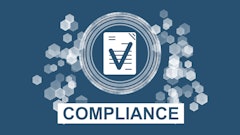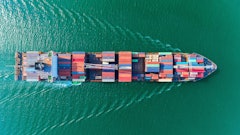
On May 3, 2023, Canada passed the “Fighting Against Forced Labour and Child Labour in Supply Chains Act”, meant to fight and prevent modern slavery by providing supply-chain transparency. Similar to the U.S. UFLPA I covered last year, this act requires public and private entities that fall under certain categories to submit annual reports of their due diligence programs that show they’re not using forced labor or child labor. The first mandatory report under the law is due on May 31, 2024.
In recent years the issue of forced labor and child exploitation in global supply chains has garnered significant attention. Brad Gates, regional head of the Americas at Ethixbase360, explains that the Act was prompted by the U.S.-Mexico-Canada Agreement (USMCA), which replaced the North American Free Trade Agreement (NAFTA) in 2020. USMCA includes some of the strongest labor rights provisions in any trade agreement. All three USMCA partners essentially renewed their commitment to protect workers’ rights when they signed the agreement and they committed to fully enforcing the agreement’s labor provisions. Gates says this law comes at a pivotal moment as more countries seek to combat modern slavery, which affects about 50 million people throughout the world, according to the International Labor Organization.
"The reach of Canada’s modern slavery law is noteworthy. The law affects not only Canadian-owned businesses but also foreign entities with business presence in the country. Companies could be fined up to C$250,000 for noncompliance or for knowingly making false or misleading statements," says Gates. "Under the Act, reporting obligations are based on consolidated financial statements, so even when individual entities within a corporation don’t meet the thresholds, they still need to report as a collective. Reporting requirements also apply to government agencies, including Crown corporations and subsidiaries owned by the government that function like private companies, such as utility companies."
From the garments we wear to the electronics we use, many products traverse complex global networks before reaching consumers. Hidden within these networks can be instances of human rights abuses and Canada's legislative framework provides a robust defense against such injustices. But how does it compare to other safety regulations?
There's still strides to be made in other areas according to Gates who says, among USMCA countries, Canada is the only one with a dedicated modern slavery law. "The U.S. has disparate laws, such as the U.S. Tariff Act of 1930 and the Uyghur Forced Labor Prevention Act (UFLPA), to address the issues that Canada’s new law is designed to handle. Mexico arguably lags in modern slavery regulations compared with its neighbors. The country’s Force Labor Regulation took effect in 2023. It’s an important first step for the Mexican government’s implementation of USMCA labor provisions."
Although law abiding seems simple, challenges persist, particularly in enforcing these laws beyond Canada's borders.
"One of the primary challenges is the complexity of global supply chains. Many businesses source materials and labor from various countries, each with its own legal and regulatory framework," says Gates. "Ensuring compliance requires a deep understanding of these frameworks and a robust system for monitoring supply chain practices. Additionally, the dynamic nature of supply chains means that businesses must continually adapt their compliance strategies to reflect changes in their operations and the regulatory landscape."
Canada's strides in labor laws wield significant influence in shaping ethical supply chains. By upholding stringent standards and promoting transparency, Canada sets a precedent for responsible corporate behavior and advocates for human rights on a global scale.


























